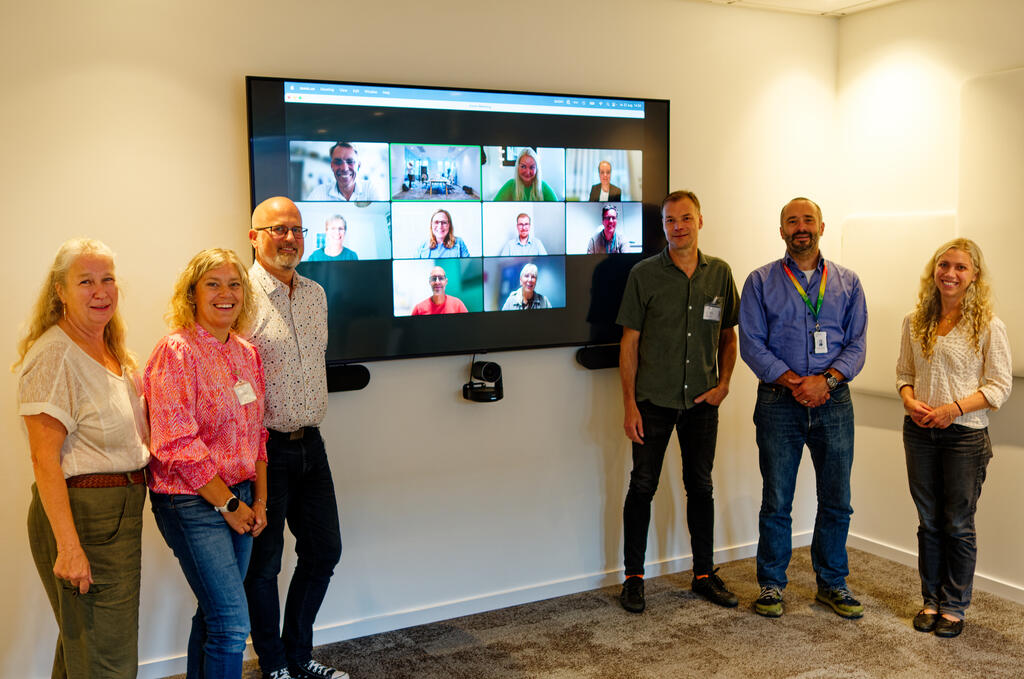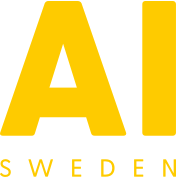AI Council develops recommendations for accelerated AI development in Swedish municipalities
Representatives from 12 of the country's municipalities have come together to present a series of recommendations for initiatives aimed at enhancing the ability of Swedish municipalities to utilize artificial intelligence.

"The AI Council is an important initiative for Sweden's municipalities. Our hope is that we can establish a common direction for the strategic work with AI in local government and create opportunities for all municipalities, large and small, to fully harness the possibilities of artificial intelligence," says Katarina Lagerqvist, Chief Digital Officer in Kristinehamn Municipality and one of the council's representatives.
In a report by DIGG, the Agency for Digital Administration, from 2019, the potential value AI could create in the public sector was estimated at SEK 140 billion annually. A significant portion of this value can be found in Sweden’s municipalities. However, the use of artificial intelligence in municipal administration varies. While some municipalities have several successful use cases to showcase, others have not progressed so far.
The conditions for utilizing AI also vary among the municipalities. The skills shortage that many employers in the private sector report also affects municipalities. Structural challenges in administrative models, existing laws, and education hinder development.
For these reasons, Vinnova has funded the project "Kraftsamling för AI i kommuner och civilsamhälle" (Joint Effort for AI in Municipalities and Civil Society).
"We see a great need for more municipalities to seriously engage in AI usage and to do so in a way that creates conditions for learning from each other and simultaneously addressing important issues together," says Fredrik Weisner, Area Manager of Digital Transformation at Vinnova.
Within the framework of the project, an AI Council has been established with representatives from twelve municipalities. The council's work is led in collaboration between AI Sweden and the Swedish Association of Local Authorities and Regions (SKR). The council's members are chosen to provide the broadest possible representation of Sweden's municipalities. This includes participants from large and small municipalities, those that have started using AI, and those that haven't yet begun. This mix is important for capturing various perspectives on municipalities' use of artificial intelligence, both in terms of the opportunities that technological development brings and the challenges associated with it.
"We are now beginning to see the potential that AI has to contribute to the development of welfare, while also needing to identify the conditions that need to be in place and the risks that need to be managed in order to increase Sweden's ability for sustainable transformation. The way forward is through broad collaboration between the public sector, business, and academia. With the AI Council, an important puzzle piece is in place," says Ola Odebäck, Head of Finance and Control at SKR.
The council's work should primarily focus on cross-municipal strategic issues related to artificial intelligence. The goals are twofold:
-
Identify and prioritize areas of application, needs, and strategically relevant questions for increased value creation with AI in Swedish municipalities.
-
Develop recommendations for concrete initiatives that promote accelerated adoption of AI in the municipal sector.
"The AI Council is a significant contribution to the development of the Swedish welfare sector. Municipalities need to collaborate on AI matters to create strategic change, overcome obstacles, and effectively prepare for a future where AI changes everything from public administration to welfare services," says Jonatan Permert, AI Sweden.
The twelve members of the council are:
-
Katarina Lagerqvist, Chief Digital Officer, Kristinehamn
-
Anna Bengtsson, Digitalization Manager, Herrljunga/Vårgårda
-
Stefan Eriksson, Development Manager Digitalization, Gagnef
-
Iwona Carlsson, Chief Digital Officer, Kungsbacka
-
Birgitta Zaar, Office Manager Social Services, Värmdö
-
Frédéric Rambaud, Digitalization Strategist, Strängnäs
-
Fredrik Edholm, Digitalization Strategist, Skövde
-
Mathias Andersson, Data Scientist/AI Lead, Helsingborg
-
Mårten Lindskog, AI Coordinator, Stockholm
-
Fredrik Hallgren, Development Manager AI, Gothenburg
-
Jari Koponen, Program Manager Digitalization Action Plan, Sundsvall
-
Torbjörn Svedung, CDO/CISO, Mellerud
Background on Kraftsamling för AI i kommuner och civilsamhälle (Joint Effort for AI in Municipalities and Civil Society)
Within the project Kraftsamling för AI i kommuner och civilsamhälle, AI Sweden supports municipalities and civil society organizations in various ways in practical implementation. Participants in the project receive training, workshops, and access to AI Sweden's network. For project ideas that receive funding in one of Vinnova's targeted calls, additional support is provided during the project period.
The project is led by AI Sweden, in collaboration with Vinnova. Also involved are the Swedish Association of Local Authorities and Regions, the Agency for Digital Administration, and the Swedish Agency for Youth and Civil Society Affairs.
For more information:
Project presentation on AI Sweden's website.
Project page on MyAI.
Press release from the project launch.
Contact Information:
Jonatan Permert, AI Sweden, Chair of the AI Council
Ina Tidvall, SKR, Chair of the AI Council
Rebecka Lönnroth, AI Sweden, Program Manager for Kraftsamling för AI i kommuner och civilsamhälle

